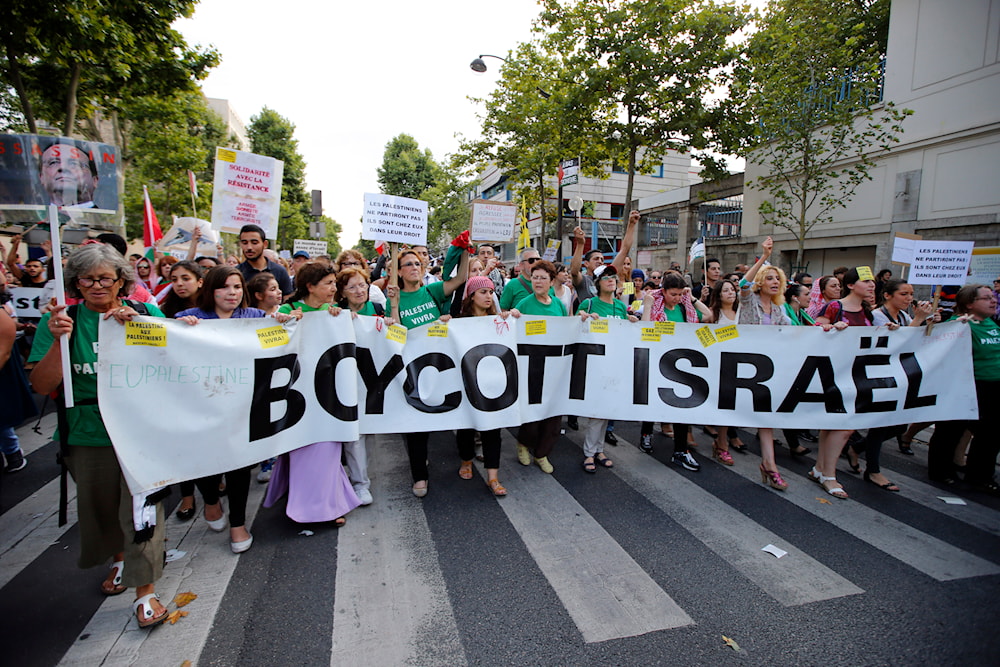Intl. academic boycott of Israeli researchers increased since Oct. 7
The fields impacted by this boycott are majorly, but not exclusively, medicine, biology, physics, space, and computer science.
-

Pro-Palestinian demonstrators hold a banner and shout slogans, in Paris, France, Wednesday, July 23, 2014, during a demonstration to protest against the Israeli bombing of Gaza (AP)
Since October 7, the willingness of academic researchers from European countries to work with Israeli researchers has dropped according to a report by the Israeli Ministry of Innovation, Science, and Technology.
Even though Italy and Belgium have been two of the countries that worked with "Israel" academically, they have made the list. Norway, Denmark, Finland, Sweden, Iceland, and Ireland are also on the list.
The fields impacted by this boycott are majorly, but not exclusively, medicine, biology, physics, space, and computer science.
In the history of the Israeli occupation, 2023 recorded the highest level of cooperation between it and European academics as 38% of Israeli research is done in collaboration with those academics, according to a summary of the report published by Israeli Channel 13 on April 25.
Since October 7, however, there has been a notable decline in the following:
- Funding of joint research ventures
- exchanges of Israeli and European academics
- giving Israelis access to laboratories and research infrastructure in Europe
- Israeli participation in professional conferences due to cancellation or prevention by organizers
It is still unclear how the Israeli government is going to deal with this situation, however, the new Science and Technology Minister Gila Gamaliel announced that she will cooperate with the Israeli Foreign Ministry and set up a committee following Passover to handle this situation.
You reap what you sow
According to the Financial Times on April 11, Yonatan Freeman, an expert in international relations at Hebrew University, said, "It reinforces this narrative that once more we’re on our own... Israelis are rallying around a flag that everywhere around the world is being taken down."
Tamar Hermann, a senior researcher at the "Israel Democracy Institute" (IDI), chimed in to say that the international criticism reinforced the "whole world is against us" notion, stating, "The [Israeli] public doesn’t see this isolation as a consequence of what Israel’s doing in Gaza... They see the hostility as more deep-seated . . . as part of our destiny."
One specific area in which criticism has been profound is academia, where researchers express worry about no longer being invited to events or having their articles published in scientific journals as a result.
In one instance, US demographer Philip Cohen announced last month he had refused to review a grant proposal sent to him for evaluation by the non-profit "Israel Science Foundation" in protest against the Israeli genocide in Gaza.
Gad Yair, a sociology professor at Hebrew University, sounded the alarm by saying that "the entire machinery of Israeli academia is based on collaboration with the international community."
"We could be approaching a South Africa-style situation with an all-round boycott."
Tom Segev, an Israeli writer and historian, said, "World opinion is always biased towards the side that suffers more, and so now they’re on the side of the Palestinians... and rightly so."

 3 Min Read
3 Min Read








